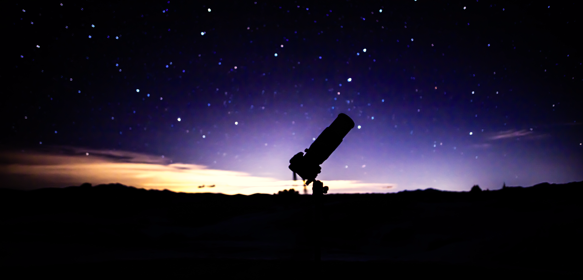World Space Week 2021

Our internationally leading Astronomy and Astrophysics Group is expanding thanks to a £3.5 million philanthropic gift to create up to 15 PhD scholarships and up to 13 Post-doctoral research fellowships. This major investment into the Group's future research potential was made possible through a private donation by a Warwick alumnus.
Prof. Christine Ennew, University of Warwick Provost, said:
“Looking to the stars has always raised important questions about the universe and our place within it, and for nearly twenty years our Astronomy and Astrophysics Group has been seeking answers. This fantastic gift will build on their world-leading reputation, helping them to drive forward our understanding of some truly fundamental questions.”
To read more, please click here.
Our pick of events outside of Warwick:
Backyard Astronomy:
You don’t need to be an expert or even have special equipment to enjoy Space Week – you just need a dark(ish) and clear(ish) sky!
- Learn about stargazing that you can do from home
- Learn about all the different types of stars you can see ·
- Did you know you can watch see satellites as they orbit the earth? Learn how to spot them
- How many constellations can you memorise? ·
- You can even see some nebulae's - the birthplaces of stars - with no equipment, although binocular's do help with some of these. Be sure to read up on constellation's first.
And what to do if it’s cloudy...
We might get lucky with the weather, but just in case, read about research and news from Warwick academics to get inspired for when the skies clear up:
- Multiple Stars in the Sky: Elizabeth Stanway looks at multiple star systems in science fiction. Click here to find out more.
- The University of Warwick is Europe’s most successful user of Hubble Space Telescope. Click here to find out more.
- A Warwick-led team made a rare sighting of a binary star system heading towards a supernova Teardrop star reveals hidden supernova doom (warwick.ac.uk) · Mapping the Shores of the Solar Neighbourhood. Click here to find out more.
- Dr Pier-Emmanuel Tremblay: White Dwarf Stars Having a Meal out of Planet Debris.
- Professor Tom Marsh: Tomographic Imaging of White Dwarf binary systems
- Professor Boris Gaensicke: Mapping the shores of the Solar Neighbourhood
- Dr Heather Cegla: A pathway to the confirmation and characterisation of habitable alien worlds
- Dr Joseph Lyman: New frontiers in transient astrophysics: Gravitational-wave multi-messenger events and exotic stellar explosions
- Dr Rebecca Nealon: Warped discs and the birthplace of misaligned planets
What is World Space Week?
World Space Week is an international celebration of science and technology and their contribution to making our world a better place.
If you would like to find out more about what we’re up to this Space Week, follow these accounts:
Join us at Warwick for World Space Week 2021
Join us for an online Q&A with Dr. Elizabeth Stanway. Her research interests include observational cosmology, how the universe has evolved, and how stars are formed.
Email socialmedia@warwick.ac.uk to submit your questions for Dr. Stanway, and she will answer them on the Warwick Uni instagram on Friday 8 October.
Follow us on Instagram for updates.

Where could life survive – both on our planet and beyond?
Discover the Habitability GRP’s brand new video animation below! The GRP investigate the limits for life, the constitution of habitable environments, our understanding nature as a ‘resource’ for human use and the ways we imagine the future of life – on this planet and beyond.
Our Habitability Global Research Priority (GRP) considers the relationships between life and environment - both on and beyond planet earth. We explore the requirements for life on Earth, and the possibility of its replication beyond our solar system.
To find out more, please visit: https://warwick.ac.uk/research/priorities/habitability
 Are you an early-career researcher or an aspiring PhD student in astronomy or astrophysics?
Are you an early-career researcher or an aspiring PhD student in astronomy or astrophysics?
Learn more about joining one of Warwick's most exciting departments at https://bit.ly/3BiR4fs

